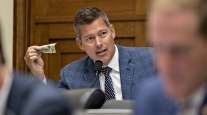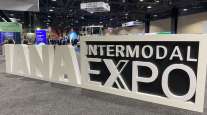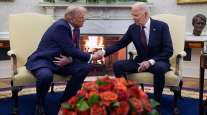Seven Smart City Finalists Make Last Presentations
Expanding public transportation in underserved areas was a common theme among the seven finalists in the U.S Department of Transportation’s Smart City Challenge as they made their final presentations to Secretary Anthony Foxx on June 9.
Austin, Texas’ proposal focused on transportation options for its poorest citizens in what Mayor Steve Adler called “the most economically segregated city in the country.” Columbus, Ohio’s plan is similar as Mayor Andrew Ginther wants to “reconnect neighborhoods who have been left out of the success story that is Columbus.” Portland, Oregon, also wants to improve transportation equity with bus, rail and ridesharing options.
VISION STATEMENTS: From seven finalists
“The cities have different approaches to how they would like to spend the federal funding, but they agreed that there’s a desperate need for cities to use advancements in transportation technology to help give people in low-income neighborhoods more options for getting around,” Foxx said. “Each of the seven proposals contained some sort of program for using technology to expand public transportation to underserved areas of each city, often involving the deployment of connected or autonomous vehicles in those neighborhoods."
As the seven finalists made their presentations, Foxx announced that AT&T will give the winning city up to $1 million in connectivity services, data analytics and security consulting. The winner also could choose to have AT&T host a hackathon or have its employees trained in app development and coding practices.
The winner is scheduled to be announced later this month.
Thrilled to hear from the 7 cities competing in the Smart City Challenge today #smartcitypitch #dotsmartcity pic.twitter.com/K5jpElCxM4 — Mobileye (@Mobileye) June 9, 2016




